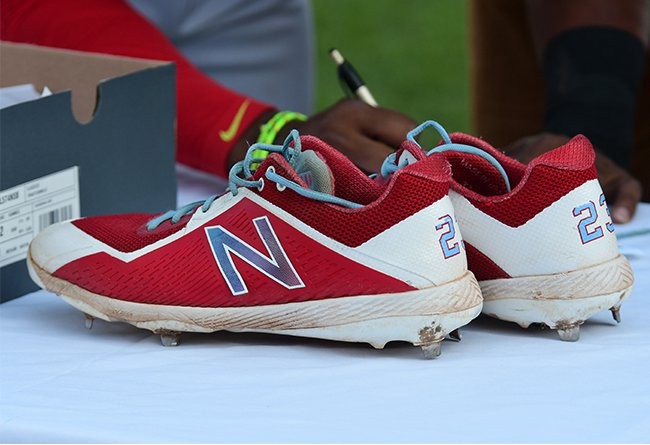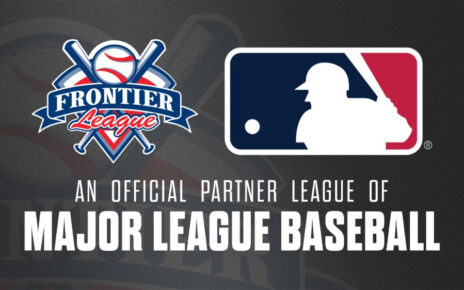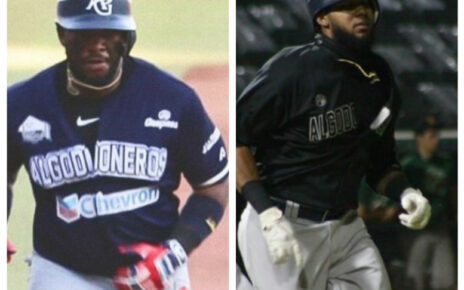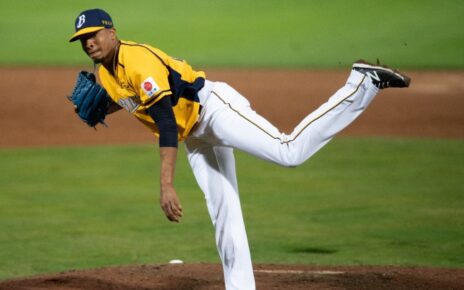On July 13th, 2019 Tony Thomas made history. On that night he became the first-ever professional baseball player to “steal” first base. Taking advantage of a new Atlantic League rule Thomas, an outfielder for the Southern Maryland Blue Crabs, sprinted to first after Lancaster Barnstormers relief pitcher Alejandro Chacín fired a ball past his catcher. There was a slight hesitation to Thomas going off, no one had made use of the new rule yet, but after a second Thomas dropped his bat and found himself standing on first instead of still in the box facing a 1-1 count.
It is true that Thomas accomplished history that night, but lost in all the hoopla is what type of history he actually did accomplish. I’m not going to argue for or against the new rule, though I lean towards being in favor of it, it needs more time to be tested out. What I do want to briefly touch upon is how these “steals” of first base are being scored and why that scoring is problematic.
When Thomas took first base he wasn’t actually credited with a steal, but rather a fielder’s choice. I don’t get that label being assigned to a play where no choice was made by a fielder. Thomas watched a pitch sail to the backstop and took first base all on his own. He should be given credit for an honest to goodness steal of first base. However, looking at the box score of that game there is no steal for Thomas to be found. That means that the play is actually hurting the batter, statistically speaking.
A fielder’s choice hurts a hitter’s batting average and does not help their on-base percentage. The proper scoring should be a stolen base, that is exactly what the hitter does in that situation. When a player is successful in stealing a base they get credit for the steal, when they are not successful they are docked for a caught stealing. Scoring it this way is also pertinent to the catcher. If the catcher guns down the runner before they reach first then that catcher should get credit for throwing out a runner attempting to steal. Though, I do understand that it gets a little dicier when assigning a catcher with an unsuccessful attempt at throwing the runner out on a stolen base of this variety.
This matters because stats are important for future contracts, promotion, Hall of Fame candidacy, etc. A player should not be penalized for using a rule and helping his team in the process. I want to see players getting their just due and I think if this rule change has a hope of gaining ground anywhere beyond the ALPB it’s important that it isn’t scored as a fielder’s choice. There’s also the issue of trying to find these events and chart them, which is very hard to do when they are not labeled as stolen bases but a fielder’s choice. The Blue Crabs say there have been two other such instances of a player “stealing” first base since Thomas’ initial attempt, but good luck scrolling through box scores to find them when they are labeled as no different than a regular fielder’s choice.
The “steal” first base rule is still in its infancy, meaning there is plenty of time to iron out the issue of its definition for scoring purposes. It’s a minor thing really, but if it ends up adopted across multiple leagues and organizations, including Minor League Baseball and Major League Baseball, it could become a bigger thing. For now, it’s a new wrinkle, something to get used to and watch as it makes changes to how the game of baseball is played. Too bad Thomas didn’t actually steal first base for the first time in baseball history, well maybe he can when that fielder’s choice is correctly changed to a steal in the near future.
Lead photo courtesy of Bert Hindman – Memories Photography




